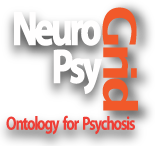Main menu
You are here
Historical Interest Only
This is a static HTML version of an old Drupal site. The site is no longer maintained and could be deleted at any point. It is only here for historical interest.
Projects
Below shows a list of projects that we are actively involved in or have been. You can filter these by showing the projects which are in progress or those which are finished.

 The primary issue is to enable end-users in the domain of chemistry to make use of computational applications. Currently, a small set of expert-users is able to make use of these tools and they often perform tasks for end-users. This setup does not scale up well as the number of expert-users is not growing. Many of the tasks are well defined and it should be possible to enable these via a web portal.
The primary issue is to enable end-users in the domain of chemistry to make use of computational applications. Currently, a small set of expert-users is able to make use of these tools and they often perform tasks for end-users. This setup does not scale up well as the number of expert-users is not growing. Many of the tasks are well defined and it should be possible to enable these via a web portal. The goal is to establish a cross-disciplinary collaborative community to pursue fundamental research for developing real time emergency response systems, using the Grid, beginning with fire emergencies.
The goal is to establish a cross-disciplinary collaborative community to pursue fundamental research for developing real time emergency response systems, using the Grid, beginning with fire emergencies. The proposed Network is motivated by the potential for synergy between two fields of technology and technique, e-Science and Digital Repositories, and the benefits that will be obtained by increasing interaction and cooperation between researchers and practitioners in these fields. This was recognised by the keynote speech of Tony Hey at the Open Repositories 2007 conference.
The proposed Network is motivated by the potential for synergy between two fields of technology and technique, e-Science and Digital Repositories, and the benefits that will be obtained by increasing interaction and cooperation between researchers and practitioners in these fields. This was recognised by the keynote speech of Tony Hey at the Open Repositories 2007 conference. To support e-Science at the National e Science Centre (NeSC) at the Universities of Edinburgh and Glasgow. The platform grant will underpin our user-support and research strategy. It will deliver a research platform for NeSC's large user community who apply e-Science and will be a platform for NeSC's own research into how to do a better job of meeting the diversity of our users' requirements. The detailed objectives are:
To support e-Science at the National e Science Centre (NeSC) at the Universities of Edinburgh and Glasgow. The platform grant will underpin our user-support and research strategy. It will deliver a research platform for NeSC's large user community who apply e-Science and will be a platform for NeSC's own research into how to do a better job of meeting the diversity of our users' requirements. The detailed objectives are:  Developing an Ontology for Psychosis. NeuroPsyGrid is a collaborative project which aims to address key issues in data interoperability in mental health sciences by developing a shared domain ontology.
Developing an Ontology for Psychosis. NeuroPsyGrid is a collaborative project which aims to address key issues in data interoperability in mental health sciences by developing a shared domain ontology. Today’s growing wealth of digital data in Europe is poorly exploited. Advances in storage, pervasive computing, digital sensors and instrumentation have led to massive growth in the volume of data collected and the number and complexity of data repositories. This growing wealth of data has an increasing potential to yield great benefits to citizens, science and business as it contains vital hidden knowledge.
Today’s growing wealth of digital data in Europe is poorly exploited. Advances in storage, pervasive computing, digital sensors and instrumentation have led to massive growth in the volume of data collected and the number and complexity of data repositories. This growing wealth of data has an increasing potential to yield great benefits to citizens, science and business as it contains vital hidden knowledge.  The huge increase in the volume of data produced in research and business environments in the last decade has been likened to a "data explosion". Not only is this data volumes on a massive scale, it is also heterogeneous and dynamic and in many cases needs to be shared across both organisational and geographical boundaries. Accordingly, data management is increasingly challenging to both research and business organisations alike.
The huge increase in the volume of data produced in research and business environments in the last decade has been likened to a "data explosion". Not only is this data volumes on a massive scale, it is also heterogeneous and dynamic and in many cases needs to be shared across both organisational and geographical boundaries. Accordingly, data management is increasingly challenging to both research and business organisations alike.
 edikt produces new knowledge by using computational science to extract information from vast datasets, and generate models through simulation. Researchers at the University of Edinburgh can get access to a range of computational resources.
edikt produces new knowledge by using computational science to extract information from vast datasets, and generate models through simulation. Researchers at the University of Edinburgh can get access to a range of computational resources.
